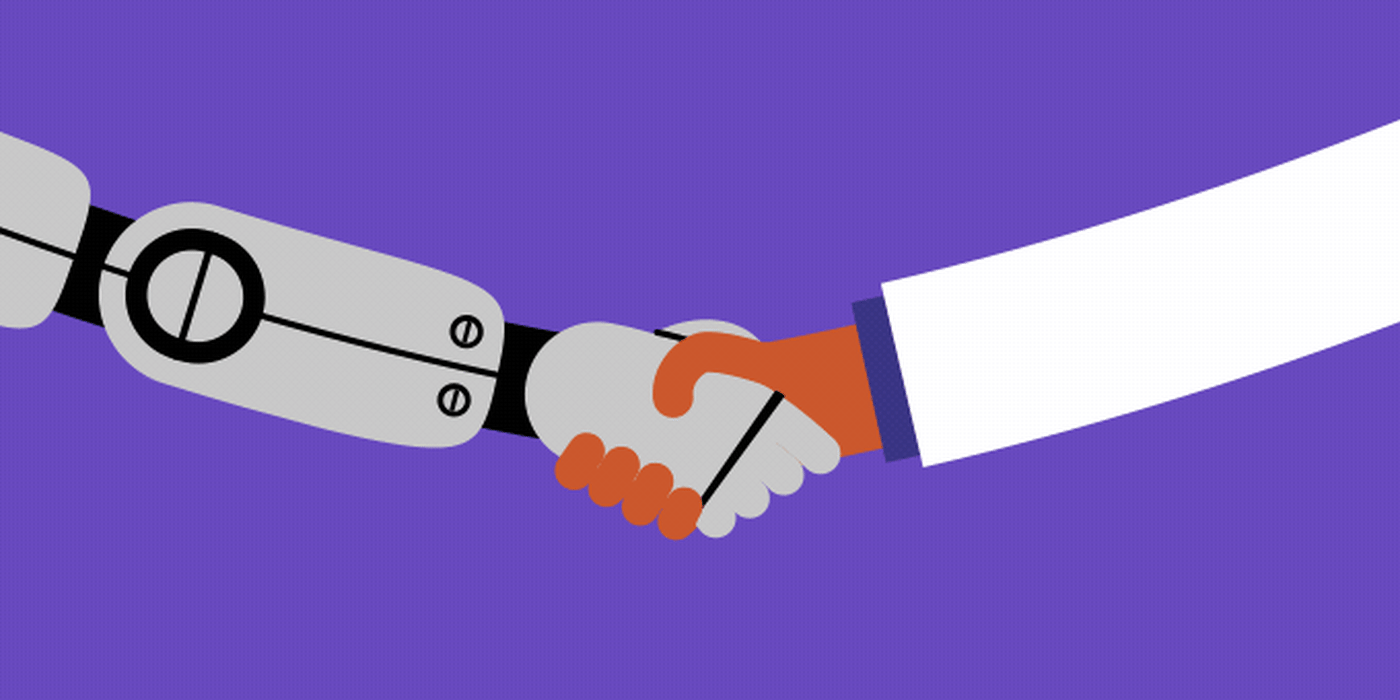In the constantly shifting and evolving landscape of psychiatric care, the promise of integrating artificial intelligence (AI) looms large, holding immense potential to revolutionize both clinical practice and medical education. As a psychiatrist, I feel it is my duty to delve into this topic and explore how we can effectively balance the use of AI with the maintenance of a human touch in our work. Our ultimate goal must always be to ensure that patients are the main beneficiaries of this technological advancement. By focusing on creating complementary roles between AI technology and traditional methods, incorporating AI into educational practices, prioritizing ethical considerations in patient interactions, promoting collaboration among health care professionals, striving for continuous improvement, and preserving the human element in all aspects of care and training, we can create a harmonious and synergistic approach that will ultimately enhance the quality of care and training in psychiatry.
Complementary Roles: AI As a Tool, Not a Replacement
In the ever-evolving field of psychiatry, AI’s role is to act as a valuable tool for psychiatrists, supplementing and enhancing their skills rather than replacing them entirely. Imagine a patient presenting with a complex array of symptoms that could potentially indicate various diagnoses. In this scenario, an AI system can analyze the patient’s extensive EHRs, past medical history, and clinical notes to uncover patterns and suggest potential diagnoses. This invaluable data-driven insight allows the psychiatrist to consider a broader range of possibilities and make a more informed decision for their patient. It must be noted, however, that while AI recommendations are helpful, they do not overshadow the importance of the psychiatrist’s clinical judgment. The human element remains paramount as the psychiatrist seamlessly integrates AI suggestions with their deep understanding of the patient’s unique context and experiences.
Patient Interaction: Enhancing Engagement and Maintaining Direct Contact
Let’s give an example here. Say you have a patient with depression, Sarah. As part of her treatment, Sarah logs into her AI-driven mental health app and records her mood and daily activities. Through the app’s algorithms, Sarah receives personalized reminders for medication and therapy sessions that align with her schedule and needs. She also has access to educational resources tailored to her specific struggles. While this technology helps her stay engaged in her treatment plan, Sarah still values her regular appointments with her psychiatrist. During these appointments, the psychiatrist discusses insights from the app’s data and provides emotional support and nuanced care. This combination of AI-driven data and human interaction helps Sarah feel understood and supported on her journey toward better mental health.
Ethical Considerations: Transparency, Bias, and Informed Consent
The delicate balance between AI and human involvement hinges on ethical considerations. Patients must be fully informed of how AI is integrated into their care, as well as its potential consequences. When conferring with a psychiatrist, a patient may learn that their personal data is being analyzed by an AI system that is manipulating their treatment recommendations with unwavering precision. This level of transparency builds trust, but also reveals the chilling reality that patients are at the mercy of technology.
But even more pressing is the issue of bias within AI algorithms. Every effort must be made to design and rigorously test these systems in order to minimize any biases that could lead to stark disparities in care. A true ethical psychiatrist would be vigilant in recognizing that AI recommendations could potentially be tainted by biased data, allowing them to critically evaluate and modify accordingly. After all, lives hang in the balance when it comes to integrating AI into health care practices.
Collaboration and Integration: Interdisciplinary Teams and Workflow Integration
As the field of AI continues to advance, it’s important for psychiatrists, data scientists, and AI developers to work together as a team. This collaboration allows for the development of clinically relevant and patient-centered AI tools. For example, a team could create an AI system that uses patient data to accurately predict the risk of suicide. The psychiatrists on the team would provide knowledge and expertise in clinical relevance, while the data scientists would fine-tune the algorithms for accuracy and applicability.
To seamlessly integrate AI into the clinical workflow without disrupting the human aspect of care, user-friendly interfaces and accessible AI support during patient interactions are imperative. With the help of an AI system that quickly retrieves and analyzes patient data, psychiatrists can have more time to focus on their patients instead of on administrative tasks. Such integration can enhance efficiency and improve the overall quality of care provided by psychiatrists.
Continuous Monitoring and Improvement: Feedback and Ongoing Training
The continual monitoring and improvement of AI systems in the field of psychiatry is crucial for their effective use. In order to ensure the success and accuracy of these tools, it is important to establish feedback loops where psychiatrists can report their experiences and observations with AI. These feedback loops allow for ongoing refinement, as any challenges or successes can be identified and addressed.
Moreover, it is essential for psychiatrists to actively participate in ongoing training and professional development opportunities. Staying updated on the latest advancements in AI and learning how to effectively incorporate these tools into their practice is a key component. This can be achieved through attending regular workshops, enrolling in online courses, and participating in seminars that focus on the integration of AI in the field of psychiatry. By continuously expanding their knowledge and skills, psychiatrists can optimize the use of AI in their practice and provide the best possible care for their patients.
Preserving the Human Element: Empathy, Compassion, and Ethical Practice
Although AI has brought many benefits to the field of psychiatric care, it is crucial to maintain the human element in treatment. The qualities of empathy and compassion are essential for providing effective care. While an AI system can provide valuable data-driven insights into a patient's condition, it cannot replace the genuine understanding and connection that a psychiatrist offers when a patient shares their struggles.
To ensure that these important qualities are not lost, psychiatrists can participate in training sessions focused on empathy and compassion. Through reflective practice exercises, where they contemplate their patient interactions and consider how they could have shown more empathy, therapists can cultivate and strengthen their ability to provide the human touch in therapy sessions. As technology advances, it is vital to remember that the heart of psychiatric care lies in the empathy and compassion between therapist and patient.
As the field of psychiatry evolves, finding the right balance between AI and human interaction will become a complex but crucial task. Through intentional strategies such as incorporating AI as a complementary tool, prioritizing interpersonal skills, upholding ethical guidelines, promoting collaboration, and continuously learning and adapting, we can create a health care environment that seamlessly integrates technology with compassionate care. Ultimately, our focus should always be on the well-being of patients, utilizing both data-driven insights and empathetic support to improve their mental health outcomes. By staying true to this goal, we can elevate the standard of psychiatric care and training and pave the way for a future where AI and human touch come together to benefit those in need of mental health support.
What would you most like to see AI used for in psychiatry? Share your thoughts in the comments.
Dr. Lauro Amezcua-Patino is an experienced psychiatrist, known for his extensive expertise in mental health, psychiatric research, forensic psychiatry, and adolescent psychiatry. He is dedicated to advancing psychiatric care through innovative practices and integrating AI technology to enhance patient care and training.
Animation by Diana Connolly






